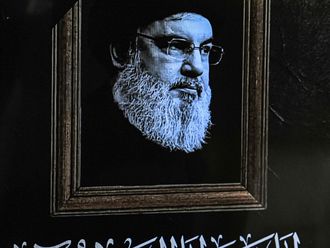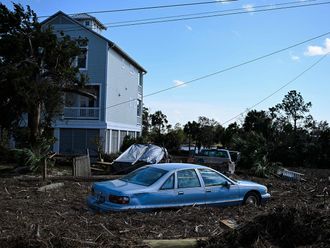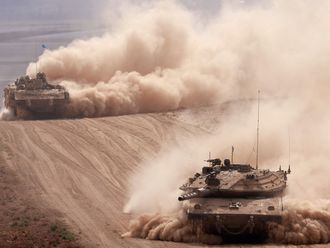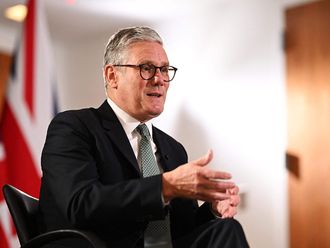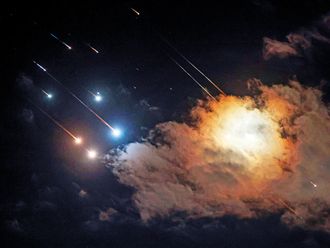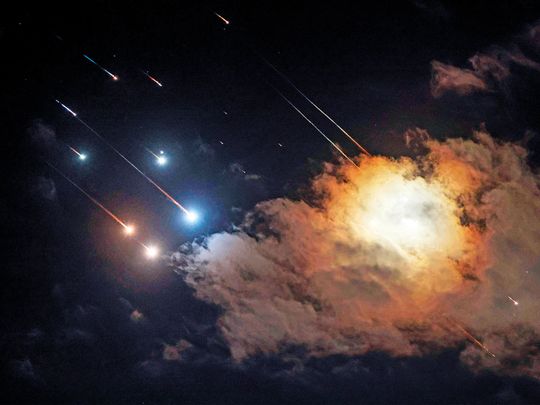
The escalating tensions between Iran and Israel has reached a dangerous new level, with both sides engaging in direct military confrontations that pose a grave threat not only to the Middle East but to global peace. The Israeli military has signalled that it is planning a significant response to Iran’s ballistic missile attack, which involved around 200 missiles targeting Israeli airbases.
President Biden, has urged Israel to avoid striking Iran’s oil or nuclear facilities, suggesting alternative responses to avoid disruption of global oil supplies.
The situation remains tense as both sides prepare for possible further escalation. As this dangerous situation unfolds, it is imperative that the global community recognises the risk it poses to worldwide security and takes decisive action to prevent further escalation.
The Iran-Israel conflict has always had the potential to spill beyond its immediate geographic borders, but the latest developments have raised the stakes dramatically. Iran’s missile attack on Israel, following Israel’s assassination of senior Hezbollah and Hamas leaders, has intensified a conflict that now directly involves both state and non-state actors.
Hezbollah, a powerful Iran-backed militia in Lebanon, has been exchanging fire with Israel almost daily since the escalation began, and Tehran has vowed further retaliation if Israel strikes back.
US-Iran confrontation?
This conflict is not just about regional power dynamics — it has serious global implications. The Strait of Hormuz, a vital passage for global oil supplies, could become a flashpoint if hostilities between Iran and Israel continue to rise.
Iran has already threatened to block this crucial waterway in the past, and a wider conflict could lead to significant disruptions in global oil markets. Such a move would trigger an economic crisis, sending oil prices soaring and creating a ripple effect across the global economy, impacting everything from food prices to inflation.
The involvement of major global powers in the Iran-Israel conflict makes it even more dangerous. The United States has long been a key ally of Israel and would likely be drawn into any broader conflict, especially if Israel’s security is directly threatened. Washington has already pledged its support for Israel’s right to defend itself, and any military escalation could quickly spiral into a US-Iran confrontation — a scenario the world has narrowly avoided in the past.
The US has significantly bolstered its military presence in the Middle East over the past year, particularly in response to the Israel-Hamas conflict and escalating tensions with Hezbollah. Twice, US forces have recently helped Israel intercept Iranian missile attacks.
A framework for peace
Europe, particularly Germany and France, has significant stakes in the conflict as well. European nations have worked tirelessly to salvage the Iran nuclear deal (JCPOA), and a war would shatter these diplomatic efforts. The resulting instability could also lead to a surge in refugees, exacerbating political tensions within the European Union and fuelling far-right movements that thrive on anti-immigrant sentiment.
China and Russia, while less directly involved, also have strategic interests in the Middle East. China, as the world’s largest oil importer, would face severe economic repercussions from a disrupted oil supply. Russia, which has close ties with both Iran and Syria, could be forced to navigate a delicate balance between supporting its regional allies and avoiding a direct confrontation with the West.
The involvement of these global powers increases the risk of the conflict becoming a broader international crisis, with proxy wars, economic sanctions, and military alliances pulling in nations from around the world.
With the stakes so high, it is clear that military solutions will only lead to further destruction and instability. The only viable path forward is through diplomacy, and the international community must act now to pressure both Iran and Israel to de-escalate. The United Nations, as well as key global players like the US, E.U., China, and Russia, must take a leading role in facilitating negotiations and providing a framework for peace.
Israel’s security concerns
A key part of this effort must involve addressing the underlying causes of the conflict. Iran’s desire for regional influence and Israel’s security concerns cannot be ignored. The international community can assist by providing security guarantees, economic incentives, and diplomatic engagement.
A broader regional framework for peace is also essential. Countries in the Middle East need to work together to prevent the conflict from spiralling out of control. The Abraham Accords, which saw the normalisation of relations between Israel and several Arab nations, provide a potential model for future peace efforts. Expanding this framework to include more countries could help create a more stable and peaceful region.
The humanitarian consequences of this conflict are already staggering. Thousands of Palestinians have been killed in Gaza and West Bank, and the situation in Lebanon is rapidly deteriorating. The international community cannot stand by and allow this human suffering to continue. Immediate humanitarian aid must be delivered to those affected by the conflict, and efforts to broker ceasefires must be prioritised.
The Iran-Israel conflict is not just a regional issue — it is a global crisis in the making. If left unchecked, it could lead to economic disaster, widespread humanitarian suffering, and the involvement of major world powers in a devastating war. The international community has a responsibility to act now to prevent further escalation.
Global peace hangs in the balance, and the time for action is now.



